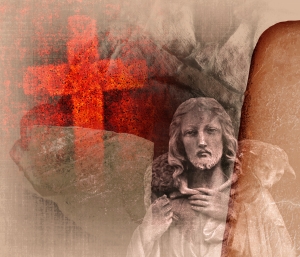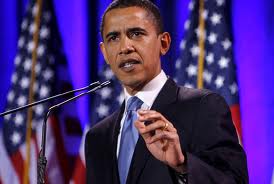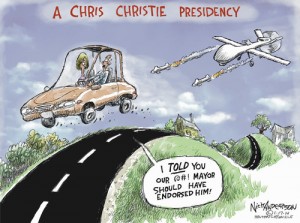In many respects the bi-partisan, Democrat-and-Republican system that we’ve grown accustomed in the past couple hundred years has failed. Too many voices, yet only two parties to represent the entirety of the nation’s desires and needs, with the occasional third party Independent. And then with this new century harkening in the populist movement that the Tea Party is leading that the media seems to suggest represents the nation, there seems to be a lack of any sort of connection between the people and their government and rational civility. If the Tea Party truly represented the ideals of the Founding Fathers (whom always bickered and fought—which is why there is a Federalist Papers and an Anti-Federalist Papers), then they would try to reconcile the federal government with what our nation and its people need, and not further disassociate the government and the people by calling almost all of what the government does invasive and a breach of civil liberties. As politicians, who are essentially representatives of government, if they believe the government serves no other purpose than to be a hindering force, then that means they did their job wrong and thus need to be recycled out for someone who knows how to make the government work for the people rather than withdrawing its support.
In fact, it was the Founding Fathers who believed a government worked best when its citizens participated in the democratic process and expressed their collective will through voting for the best representatives that would ensure their voice within Congress. Granted, they did say no taxation without representation, but, historically speaking, that was about the British government not recognizing the States and its peoples’ voice despite the fact that they were paying taxes to the British. It wasn’t a statement, as Michelle Bachmann has so wrongly pointed out on multiple occasions, that taxation just did not work for the people and shouldn’t be imposed. The federal government has expenses. With the financial crisis, I believe we’ve learned just how much. And if they have no money to pay for those expenses, then debt piles up. It is very simple mathematics. And while I won’t pretend that the economic situation is actually that simple, it is a significant reason. We want our government to do things for us, but we just don’t want to pay them to do it, or afford it.
While that is partially the fault of populist politicians and public officials that have actively engaged in trying to disrupt a well-oiled government—not always on purpose—for quite some time now, the blame does rest somewhat on the people that voted these people into office. I know we like to pretend going to the polls is just another patriotic chore that, on an individual level, counts for nothing, but that simply is not true. America’s citizens express their collective will through its government, and for the past fifty plus years we have essentially been on a self-destructive path that’s finally caught up with us. But for some reason, we feel like it can’t be changed unless we just further remove ourselves from government, and vice versa, as if we haven’t been doing that. The Tea Party is just the most recent manifestation of our nations’ frustrations with our politicians. The most recent manifestation of people in fear only exacerbating the problem.
But solipsistic atomization does not work. It never has worked. It is the process in which we further divide ourselves by disrupting our collective will, i.e. the federal government, that only serves to further plunge us deeper into a massive hole. I know a lot of people like to compare Obama and Bush, and the government in general, to Hitler, Stalin, socialism, and communism, and other such boogey-man associations, but people fail to look just a little bit further back in those nations’ histories and realize why Hitler and Stalin were able to take power, and socialism and communism came about. It wasn’t because a few selective individuals just got it in their heads that they were going to become the head of their nation, promise their people hope, and then tyrannize them once they gained power. Their people were frightened, fearful of tomorrow, and wanting someone to come in and clean up all the shit. They lost faith in their collective wills, and made really bad decisions. That kind of sounds like where America is at right now. And Sinclair Lewis’ It Can’t Happen Here, while fictional, does a pretty good job at pinpointing exactly how a charismatic populist leader can sweep through the nation, making dozens of idealistic and ideological promises, not even considering any sort of rationality, and then reneges on each and every one of those promises and pushes its people into disaster.
The Coffee Party, a non-partisan party that arrived in 2010 as an expression that there were other options and opposition to the Tea Party, represents the collective will that is so necessary in our nation’s time of need. Rather than further divide us by choosing idiotic polices that promise the government won’t infringe upon your rights, only to have them do so later but “covertly”, isn’t it time that we ask what we can do, as the people that vote and are civically engaged, to make our government better so that it might start working for us. Of course it won’t be easy, and in no way is one party ever going to encompass the myriad of opinions and experiences that exist within each American, but we should start thinking about policies that, rather than blaming each problem on someone else, are actually trying to work for the people, reconciling those differences so that they might work for the collective good.
Coffee Party: The Wake Up and Stand Up Revolution,




